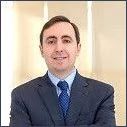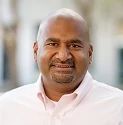Thank you for your interest in Multidisciplinary Cancer Care: What Does the Future Hold?
If you missed the live event, we invite you to watch the replay:
Every patient’s cancer diagnosis is different, and consequently, there is really no valid “one size fits all” approach to treatment. Recently-published long-term research* shows that the use of multidisciplinary collaboration leads to changes in diagnosis, treatment, and survival. The surveyed research shows that a multidisciplinary approach is the best way to deliver the complex care needed by cancer patients; however, it is a challenge that requires organizational and cultural changes and must be led by competent health managers who can improve teamwork within their organizations.
Join a panel of experts with deep experience working across specialties for the benefit of their patients.
Topics to be covered:
- Working together to decide on treatment approaches and how these decisions are affected by a patient’s stage/comorbidities/other factors
- Coordinating care with outside referring hospitals
- Types of clinical data that are important to different specialties within the multi-disciplinary team
- What kinds of organizational structures/support are essential for successful multidisciplinary collaboration?
- Collaboration tools. Which ones are useful and how?
- Overcoming challenges within the multi-disciplinary team, and barriers to patients gaining access to a multidisciplinary care program
- How a multi-disciplinary team optimally thinks through management options for patients with recurrent disease?
Speakers:

Aravind Arepally, MD, FSIR
Adjunct Professor of Radiology and Radiological Sciences at Vanderbilt University
Dr. Arepally is also a practicing interventional radiologist at Piedmont Healthcare and active researcher with significant experience in clinical care, clinical trials and translational research. His research has resulted in clinical translation with several “first in man” events, FDA approvals and patent holdings. He has authored more than 150 papers, books, and abstracts, and has been a principal investigator or co-investigator on more than 15 grants (5 NIH).

Joseph Friedberg, MD
Charles Reid Edwards Professor of Surgery and head of the Division of Thoracic Surgery at the University of Maryland School of Medicine
Dr. Friedberg was previously Chief of Thoracic Surgery at Penn Presbyterian Medical Center (part of the University of Pennsylvania Health System). His translational research has focused on developing new, more effective therapies for various types of thoracic malignancies.

Corey Langer, MD
Director of Thoracic Oncology at the University of Pennsylvania Abramson Cancer Center
Dr. Langer is an internationally recognized expert in thoracic malignancies, as well as head, neck and thyroid cancers. Dr. Langer is Chairman of the Medical Oncology Committee of the Radiation Therapy Oncology Group. His research has been in the areas of salvage therapy as well as concurrent chemotherapy and radiation regimens.

Charles B. Simone, II, MD, FACRO
Chief Medical Officer of the New York Proton Center
Dr. Simone is a Research Professor and a Full Member in the Department of Radiation Oncology at Memorial Sloan Kettering Cancer Center. He is an internationally recognized expert in the use of proton therapy to treat thoracic malignancies and for reirradiation, and in the development of clinical trial strategies and innovative research in thoracic radiation oncology and stereotactic body radiation therapy.
Moderator:

Deepak “Dee” Khuntia, MD
Senior Vice President and Chief Medical Officer, at Varian
Dr. Khuntia leads Varian’s Medical Affairs program. He works closely with the Varian product, regulatory, business development, and innovation teams to provide clinical and scientific guidance in all areas of clinical risk and opportunities, safety reviews, adverse experience reporting, product life cycle reviews, clinical protocol design, mergers and acquisitions, and strategy.
*BMC Health Services Research: The impact of tumor board on cancer care: evidence from an umbrella review.